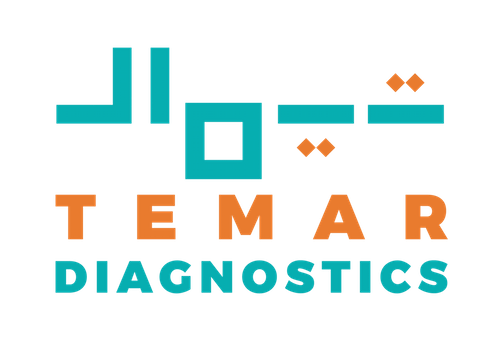TEMAR LABORATORIES’ UTILIZE HIGH-GRADE ANALYZERS THAT PRODUCE THE HIGHEST QUALITY RESULTS IN RAPID TIME. TEMAR OFFERS CLIENTS AN EXPANSIVE TEST MENU THAT COVERS ALL INDIVIDUAL TESTS.
Because we require less blood samples than most chain laboratories, our sampling procedures are more patient friendly, ensuring a positive perception of the clinic. All samples are collected and delivered to our centralized lab facility. As we are able to perform the vast majority of our testing in-house, the potential for lost blood samples is practically eliminated.
CLINICAL CHEMISTRY: Clinical chemistry (also known as chemical pathology, clinical biochemistry, or medical biochemistry) is the area of clinical pathology that is concerned with the analysis of bodily fluids for diagnostic and therapeutic purposes (not to be confused with medicinal chemistry).
HISTOPATHOLOGY: It refers to the microscopic examination of tissue in order to study the manifestations of disease. Specifically, in clinical medicine, histopathology refers to the examination of a biopsy or surgical specimen by a pathologist, after the specimen has been processed and histological sections have been placed onto glass slides.
CLINICAL PATHOLOGY: Clinical pathology supports the diagnosis of a disease using laboratory testing of blood, bodily fluids, tissues, and microscopic evaluation of individual cells. It is a medical specialty concerned with the diagnosis of disease based on the laboratory analysis of bodily fluids or extracts using the tools of chemistry, microbiology, haematology, and molecular pathology.
MOLECULAR BIOLOGY: Molecular biology is a branch of biology that deals with the structure and function of the macromolecules (e.g proteins and nucleic acids) that is essential to life. It is concerned with the molecular basis of biological activity between biomolecules in the various systems of a cell, including the interactions between DNA, RNA, and proteins and their biosynthesis, as well as the regulation of these interactions.
GENETICSGenetics is the study of genes, genetic variation, and heredity in living organisms. It is generally considered a field of biology, but it intersects frequently with many other sciences, and is strongly linked with the study of information systems.
HAEMATOLOGY: Haematology is a branch of medicine that studies blood, the blood-forming organs, and blood diseases. The word “heme” comes from the Greek for blood. Hematology is practiced by specialists in the field who deal with the diagnosis, treatment, and overall management of people with blood disorders ranging from anemia to blood cancer.
MICROBIOLOGY: Microbiology is the study of organisms, most of which are too small to be seen by the naked eye. Microbiology majors acquire knowledge and laboratory skills in the structure, physiology, genetics, pathogenicity, ecology, and taxonomy of microorganisms. It specialises in human and animal infectious diseases, immunology, bacteriology, virology, molecular genetics, and environmental, and industrial processes.
